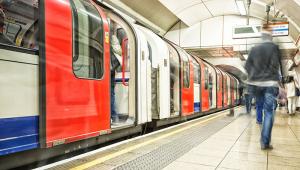TfL estimates that Mayor Sadiq Khan’s fares freeze policy will cost around £640m over the four-year mayoral term, adding to the current deficit of £1bn for 2018-19, according to a report by the London Assembly budget and performance committee.
The report found that five modes of transport in London – buses, street maintenance, the Elizabeth line [Crossrail], TfL rail and other services like river services – run at a loss.
Loss-making modes of transport are subsidised in part by commercial income from things like advertising revenue (£203m), as well as tube profits (£172m). But this still leaves an overall deficit.
Gareth Bacon, chair of the committee, said: “The first-term partial fares freeze will end up costing TfL at least £640m; a second-term freeze could be substantially more, and it is simply not sustainable if TfL is to claw its way out of a perilous financial situation.
“The public rightly demand value for money and good transport services but the organisation running most of the services in London cannot be left out in the cold through unsustainable policies.”
Bacon said TfL needed a “period of calm” to make “sensible” and “long-sighted” financial decisions.
Khan committed to freezing fares for buses and trams, tube and DLR services, Santander cycles, Overground and TfL Rail and the River Bus until 2020.
The committee said it was “surprised” that TfL has not modelled a second fares freeze yet and they called for this to be done immediately.
It also said Vehicle Excise Duty was “grossly unfair” citing TfL estimates that London’s drivers pay £500m annually in VED all of which is distributed away from London.
The committee called on the government to devolve VED revenue to London.
A TfL spokesperson said: “Passenger income this financial year is in line with budget, with income and ridership on London Underground currently ahead of budget, partly offset by lower demand for buses. Customers have also benefited from a four-year fares freeze on TfL services, which has helped sustain demand.
“Our five-year business plan to be published by the end of the year will describe how we will manage the financial impact of the delay to the Elizabeth line while continuing to improve transport for everyone in London.”
In October, Whitehall handed out a £350m loan to TfL’s Elizabeth line project, which has faced cost overruns and delays.









